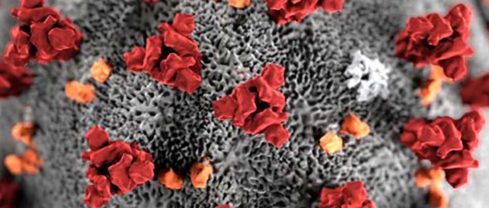UWI Cave Hill experts release study findings to curb COVID-19 spread

The UWI, Cave Hill Campus, Wednesday, April 15, 2020. As countries institute quarantine measures to contain the spread of COVID-19, they are being given early warning to be prepared to deal with the associated side effects.
In a just-released document, the Public Health Response Team of The UWI Cave Hill Campus, said studies have shown that mass containment or mass quarantine measures for extended periods can result in post-traumatic stress symptoms, confusion, anger, infection fears, frustration, boredom, inadequate supplies, inadequate information, financial loss and stigma.
As a result, they have recommended that the timing and repetition of these necessary measures, be carefully considered.
The advice is contained in a document titled, Intervention Strategies for Stages 2 and 3 of the Barbados COVID-19 Response: An evidence base.
It comes as countries struggle to contain the deadly virus that has, so far, killed over 128,000 people worldwide and infected more than two million, of which over 6000 cases are in the Caribbean. To date, there are no available vaccines or antivirals.
Deputy Dean in charge of Research and Postgraduate Studies, and Senior Lecturer in Qualitative Research Methods at The George Alleyne Chronic Disease Research Centre, Dr. Madhuvanti M. Murphy said there are trade-offs to mass quarantine or containment strategies.
“The Barbados Government has made quick moves towards suppression in line with recommendations coming out of the evidence. For example, they have made the current containment measures for a short period, which evidence suggests can reduce some of the side effects mentioned. Keep in mind that these containment strategies may need to be repeated in order to curb the waves of infection that are expected to follow relaxation of containment.
“In this way, our health system is not overburdened at one specific time, but hopefully by slowing the disease spread, can handle cases over a longer period of time. Other public health interventions such as physical distancing, hand washing and other hygiene measures must continue regardless of containment measures.”
The members of the public health team have different areas of expertise. Professor Ian Hambleton specializes in statistical modelling, Dr. Murphy and Dr. Heather Harewood are concentrating on non-pharmaceutical interventions, Dr. Natasha Sobers and Dr. Christina Howitt are in charge of surveillance while Dr. Kim Quimby and Dr. Natalie Greaves are focusing on process planning and evaluation.
“If population level quarantine is necessary, results indicate that every measure must be taken to ensure that this experience is as tolerable as possible,” the team said.
To lessen the effects of the measure, the researchers recommend that individuals in quarantine be provided with access to meaningful activities such as free online services and support groups and that authorities ensure the availability of basic supplies such as food, water, and medical supplies.
The experts analysed the strategies being used to suppress the virus – information, education and communication, in particular, continued sensitization and communication with the public; no mass gatherings; social distancing in the general population; social distancing in persons 70 years and over and community-wide quarantine as a pandemic containment strategy.
They concluded that while containment is necessary, clear timeframes were needed and legal framework necessary for implementation.
They also agreed that communication was a critical tool in the fight, including social media.
“Past pandemics have found that communicating recommendations related to distancing interventions have the most compliance issues due to underlying beliefs on the negative social and economic consequences of such behaviour change,” they noted.
Though the term social distancing has now become a buzzword, the experts cautioned that it does not seem to be well understood and suggested that it be replaced with the phrase physical distancing.
Regarding that strategy, they cited data on public behaviour in the United Kingdom during the current pandemic.
“Overall, social distancing such as ‘avoiding going out’ was not perceived as a very effective measure to prevent COVID-19 (69%) in the UK,” the team said.
“In addition, while 71% of the general UK population reported changing behaviour in response to government guidance, it was notably lower for young adults ages 18-24 years (53%). This indicates a need for targeted communication to this group, using alternative media resources example NGOs, social media, social influencers, as even though globally they are not considered vulnerable, they can spread the virus. As well, men need to seek care early since globally they have been most affected and this is attributed to them not seeking care early.”




